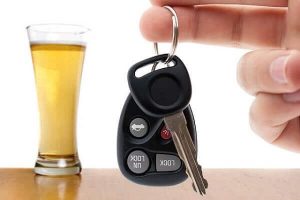
In New Mexico, it is illegal to drink and drive when you are clearly too intoxicated to do so safely. While there is a BAC limit tied to DUI charges, you could be arrested and charged with a DUI even if you are not over this threshold or if you refuse to take a breathalyzer test.
In general, you might be arrested if your BAC is 0.08 percent or higher as an adult (over 21 years old), or 0.02 percent if you are under the legal 21-year drinking age. If you are a commercial driver with a CDL, then you will be arrested and charged with a DUI if your BAC is 0.04 percent or more.
As you can see, there are various levels of BAC limits that lead to DUI charges, but there is more to it and other ways to be arrested and charged for driving while under the influence.
Why BAC Limits Exist – the Effects of Alcohol on the Body
You may wonder why the state has specific BAC limits for dictating when a person is intoxicated. Studies have shown that, when you drink alcohol even in small amounts, it will affect your judgment, concentration, reaction, balance, and even vision. The more you drink, the more these areas are affected.
Alcohol metabolizes differently in every person. Some people can have two drinks and be perfectly fine, while others may have a few sips and be intoxicated. Regardless, when you drink and drive, you are unable to react correctly in situations like coming to a stop at a stop sign.
Alcohol reduces all skills necessary to drive safely on the road, and it is one reason DUI accidents are still one of the leading causes of fatal crashes in the United States.
Some states are working to lower their BAC thresholds. However, most states have thresholds of 0.08 percent as a baseline. Utah, for example, recently lowered their BAC limit to 0.05 percent for a DUI. They were one of the first states to do so, and more are following suit, realizing that DUI accidents are still widely out of control. The goal is to reduce how much alcohol a person consumes before getting behind the wheel, especially because one drink might easily put them over the 0.05 percent rule.
Realize the Volume of Alcohol to Reach the BAC Limit Varies By Person
You could have two drinks and be over the 0.08 percent threshold while someone else can have three or four and not. Numerous factors go into how your BAC builds up, including your age, drinking status, weight, height, gender, and even health conditions. Therefore, never assume that you can safely have one or two drinks and not be over the limit.
There are BAC calculators you can install on your smartphone that will give you a general idea of what your BAC might be based on the drink you have just consumed. While not 100% accurate, they at least give you a guideline to follow so that you can ensure you do not accidentally drink more than you can handle when you still need to drive home.
Clear Intoxication Can Result in a DUI Regardless of BAC Results
You do not need to be over the limit to be arrested and charged with a DUI, especially if you appear obviously intoxicated. Some people cannot operate a vehicle safely even at 0.05 percent BAC. Therefore, if you are driving recklessly and it turns out you have been drinking, limit or not, you can be arrested.
Likewise, if you refuse to take a test to measure your BAC, you might assume that you cannot be arrested or charged with a DUI – after all, they have no evidence you were over the legal limit, right?
Incorrect.
Refusing to take the test almost makes you more guilty than just taking it. The prosecution can use your refusal as an admittance of guilt, because a person who knows they are not intoxicated wouldn’t refuse a test that can exonerate them.
Likewise, you will have an automatic driver’s license suspension if you refuse to take a test. When you get a driver’s license in the state of New Mexico, you agree to breathalyzer or blood tests if you are suspected of a DUI. Ignoring this requirement means your license is suspended.
The Penalty – Does It Change Depending on Your BAC Limit?
If your BAC is 0.08 percent or more and you are over 21, the penalty will depend on whether you are facing your first, second, third, or subsequent charges. The more offenses you have, the harsher the penalties.
You can be charged with aggravated DUI, which has enhanced penalties that may include higher fines and prison time. If your BAC is 0.16 or more (twice the legal limit), then you will be arrested and charged with aggravated DUI. The aggravated status can increase your jail sentence to 48 hours if you are a first-time offender, but it can increase it by 60 days if it is your third DUI.
Likewise, if you harm anyone and you are under the influence at the time (such as causing a motor vehicle accident), you are at risk for an aggravated DUI charge, too.
You Need an Attorney with DUI Defense Experience
If you have been arrested for a DUI, it is imperative that you speak with an attorney, immediately. You need someone with experience defending DUI charges. Even a first-time offense carries harsh penalties, including driver’s license suspensions, jail time, and the long-term consequences of a criminal record.
If you were arrested for a DUI, now is the time to act. Contact a defense attorney at New Mexico Criminal Law Offices today by calling us or requesting your free case evaluation online.

